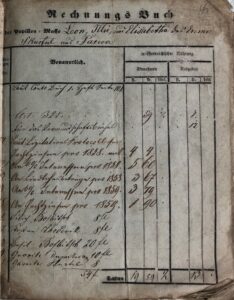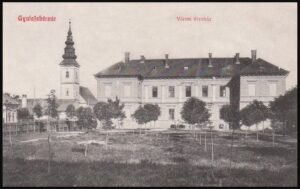
This research project investigates orphans and orphanhood in Transylvania during Dualism (1867-1914) at the nexus of nation and state-building processes. During the 19th and early 20th centuries, the concurrent nation-building efforts of the nationalities inhabiting the Dual Monarchy blurred already hazy borders between the family and the public sphere. Not only was the nation a priority, but it was also the sum of its individuals: who more in need of aid to grow into good Romanians, Transylvanian Saxons, or Hungarians, than orphans? Private scholarship foundations, confessional or cultural associations, women’s reunions, or even informal groups, loosely organized around certain leading figures or national gazettes, joined in their efforts to literally and figuratively raise the nation. Children in general, and orphans in particular, would come into focus as the perfect locus of intervention and the nexus of future national revival.

Aims and objectives
We explore this topic from several major vantage points:
A. To unravel the complex legislative and institutional underpinnings of the orphan welfare system developed in Dualist Hungary, focusing on the counties of historical Transylvania (i.e. without the Banat and Partium) during Dualism and prior to the First World War.
B. To reconstitute the historical experience of orphans, regardless of their social-economic, national, or confessional backgrounds, as subjects in their own narratives, possessed of agency.
C. To integrate the quantitative and qualitative dimensions of orphan welfare in Transylvania, by adapting and making use of already extant digital infrastructures of social and population history (the Probate Database of Transylvania, the Historical Population Database of Transylvania, and the Historical Data Grinder).
D. To engage with the wider scholarly community and explore digital source publication possibilities.

Envisaged impact
The project will provide a novel perspective on the intersections between social and political history at the regional level in Transylvania.
- By refocusing the enquiry on orphans as a politically charged historical actor, we acknowledge that the historical discourses prioritizing orphan welfare from national-confessional and state milieus were not mere lip service, but rather signals that children lacking family networks were useful and highly significant building-blocks for both the national community and the corps of future citizens.
- The mapping of the institutional infrastructure underpinning the efforts of orphan welfare, focused on its financial and administrative practices, will reveal the hitherto invisible ties engendered by cashflows between these institutions and various banking and credit institutes, given the sometimes-considerable funds they kept secure on behalf of orphans.
- The recovery of Transylvanian orphans’ fates will serve as a high point from which new vistas of trans-national and trans-confessional social history of modern Transylvania can reveal themselves.
